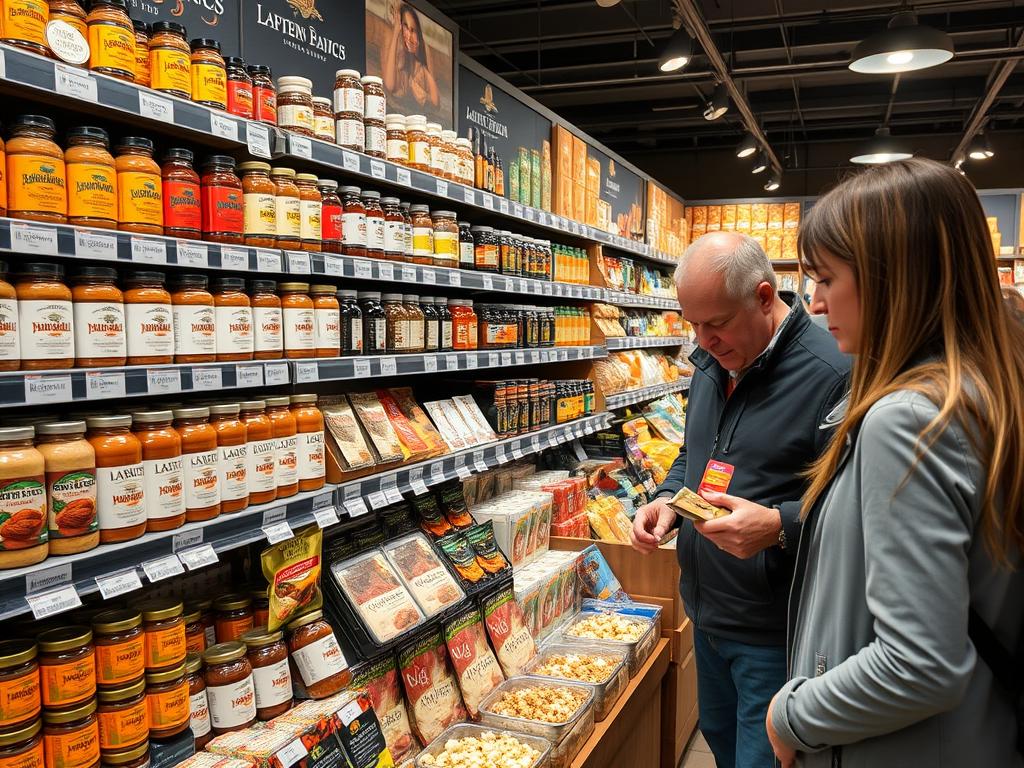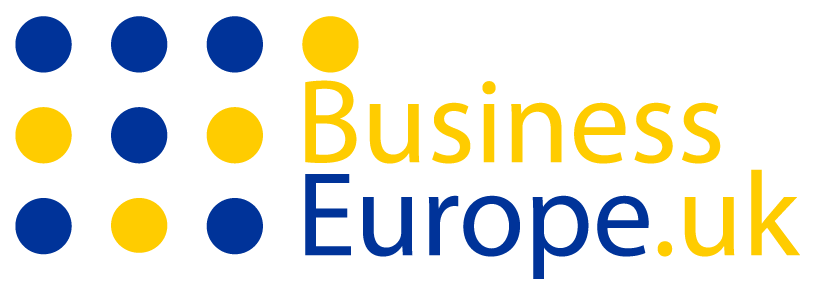From tech-driven startups to traditional artisanal ventures, we’ll examine business models that leverage both American entrepreneurial spirit and European market demands. Each recommendation includes practical information on costs, regulatory considerations, and target markets to help you make informed decisions about your European business journey.
European Business Opportunities: At-a-Glance Comparison
| Business Idea | Startup Cost Range (USD) | Avg. Monthly Revenue (USD) | Ease of Setup (1-5) | Key Markets in Europe |
| Eco-Friendly Product Store | $15K–$40K | $8K–$25K | ⭐⭐⭐ | Denmark, Germany, Netherlands |
| Digital Marketing Agency | $5K–$20K | $10K–$50K | ⭐⭐⭐⭐ | UK, France, Spain |
| Specialty Food Export | $20K–$60K | $15K–$40K | ⭐⭐ | Italy, France, Spain |
| Tech Education Services | $10K–$30K | $12K–$35K | ⭐⭐⭐⭐ | Germany, Sweden, Finland |
| Sustainable Tourism | $25K–$80K | $20K–$60K | ⭐⭐ | Portugal, Croatia, Greece |
| Remote Work Consultancy | $3K–$15K | $8K–$30K | ⭐⭐⭐⭐⭐ | Estonia, Ireland, Portugal |
| Health & Wellness Products | $20K–$50K | $15K–$45K | ⭐⭐⭐ | Switzerland, Sweden, UK |
| FinTech Solutions | $50K–$200K | $30K–$150K | ⭐⭐ | UK, Lithuania, Luxembourg |
| Language Services | $5K–$25K | $7K–$30K | ⭐⭐⭐⭐ | Belgium, Switzerland, Luxembourg |
| Artisanal Food Production | $30K–$80K | $12K–$40K | ⭐⭐⭐ | France, Italy, Spain |
Need personalized guidance on European market entry?
Our team of international business consultants can help you evaluate which business model best suits your skills and investment capacity.
1. Eco-Friendly Product Store

Features
- Target audience: Environmentally conscious European consumers (particularly strong in Northern Europe)
- Scalability: Moderate to high with potential for online expansion across EU markets
- Tech requirements: E-commerce platform with multi-language support, inventory management system
Stats
Pros
Cons
- Strict EU product certification requirements
- Competitive market in Northern European countries
- Higher initial inventory investment
- Need for authentic sustainability credentials
Specifications
- Required licenses: General retail license, import permits if sourcing from US
- Recommended locations: Copenhagen, Amsterdam, Berlin, Stockholm
- Key product categories: Home goods, personal care, fashion, zero-waste alternatives
- Certifications needed: EU Ecolabel, organic certifications, fair trade
2. Digital Marketing Agency

Features
- Target audience: European SMEs looking to improve digital presence and American companies entering European markets
- Scalability: High, with potential to serve clients across multiple countries
- Tech requirements: Marketing automation tools, analytics platforms, CRM systems
Stats
Pros
- Low initial investment compared to other businesses
- Leverages American marketing expertise valued in Europe
- Location-independent business model
- High profit margins (50-70%)
Cons
- Cultural and language adaptation challenges
- GDPR and EU digital regulations compliance
- Competitive market in major cities
- Need for local market knowledge
Specifications
- Required licenses: Business registration, data processing registration
- Recommended locations: London, Barcelona, Berlin, Amsterdam
- Key service areas: SEO localization, multilingual content, EU-compliant digital advertising
- Staffing needs: Multilingual content creators, local market specialists
3. Specialty Food Export

Features
- Target audience: European gourmet food retailers and consumers interested in authentic American products
- Scalability: Moderate, with growth potential through distributor relationships
- Tech requirements: Inventory management, international shipping logistics software
Stats
Pros
- Growing European interest in authentic American cuisine
- Premium pricing potential for quality American products
- Leverages existing US connections for sourcing
- Cultural familiarity with product offerings
Cons
- Complex EU food import regulations and certifications
- Shipping logistics and shelf-life challenges
- Need for adaptation to European taste preferences
- Currency fluctuation risks
Specifications
- Required licenses: Food import license, distributor agreements, EU food safety compliance
- Recommended locations: Major European cities with international populations
- Popular products: Craft BBQ sauces, artisanal peanut butter, specialty maple products, craft jerky
- Distribution channels: Gourmet food shops, online specialty stores, food halls
4. Tech Education Services

Features
- Target audience: European professionals seeking tech upskilling, companies needing employee training
- Scalability: High, with potential for online courses and multiple locations
- Tech requirements: Learning management system, video conferencing, course development tools
Stats
Pros
- Strong demand for tech skills across Europe
- American tech expertise is highly valued
- EU funding available for workforce development
- Flexible business model (in-person, online, corporate training)
Cons
- Need for curriculum localization
- Varying educational regulations by country
- Recruiting qualified instructors
- Technology and facility costs
Specifications
- Required licenses: Educational service provider registration, accreditations
- Recommended locations: Berlin, Stockholm, Helsinki, Dublin
- Popular course topics: Coding, data science, UX/UI design, digital marketing
- Business models: Bootcamps, corporate training, subscription-based online learning
5. Sustainable Tourism

Features
- Target audience: Environmentally conscious travelers, particularly Americans visiting Europe
- Scalability: Moderate, with seasonal fluctuations and expansion to multiple destinations
- Tech requirements: Booking system, customer relationship management, digital marketing tools
Stats
Pros
- Growing market for responsible tourism
- EU incentives for sustainable tourism businesses
- American perspective on European destinations is valued
- Potential for premium pricing
Cons
- Seasonal business in many locations
- Tourism licensing requirements vary by country
- Higher insurance and liability costs
- Need for deep local knowledge
Specifications
- Required licenses: Tourism operator license, local guide certifications
- Recommended locations: Portugal (Azores), Croatia (Dalmatian Coast), Greece (less-traveled islands)
- Business models: Guided tours, eco-lodging, sustainable travel planning services
- Certifications: Travelife, Green Tourism, EU Ecolabel for tourist accommodations
6. Remote Work Consultancy

Features
- Target audience: American remote workers and digital nomads, US companies with distributed teams
- Scalability: High, with low overhead and digital service delivery
- Tech requirements: Video conferencing, project management tools, digital document processing
Stats
Pros
- Minimal startup costs
- Growing demand from digital nomads and remote companies
- Location-independent business model
- Leverages firsthand experience as an American in Europe
Cons
- Need to stay current on changing visa and tax regulations
- Competitive market with low barriers to entry
- Requires network building for client acquisition
- Seasonal demand fluctuations
Specifications
- Required licenses: Business registration, potentially legal consulting license depending on services
- Recommended locations: Estonia (e-Residency program), Portugal (Digital Nomad Visa), Ireland
- Service offerings: Visa application assistance, tax optimization, remote work setup, relocation services
- Target clients: American freelancers, startup founders, remote employees
7. Health & Wellness Products

Features
- Target audience: Health-conscious European consumers, fitness enthusiasts, wellness practitioners
- Scalability: Moderate to high with e-commerce expansion potential
- Tech requirements: E-commerce platform, inventory management, subscription service capabilities
Stats
Pros
- Growing European wellness market
- American wellness trends often precede European adoption
- Recurring revenue potential with subscription models
- Cross-border e-commerce potential
Cons
- Strict EU regulations for health claims and ingredients
- Different certification requirements than US
- Higher product development and certification costs
- Need for localized marketing approaches
Specifications
- Required licenses: Product registrations, health product retail license
- Recommended locations: Switzerland, Sweden, UK, Germany
- Popular products: Natural supplements, fitness accessories, wellness technology, organic personal care
- Distribution channels: Specialty health stores, fitness centers, online direct-to-consumer
8. FinTech Solutions

Features
- Target audience: European consumers and businesses seeking innovative financial services
- Scalability: High, with potential for rapid growth across EU markets
- Tech requirements: Secure development infrastructure, compliance systems, payment processing
Stats
Pros
- Strong European FinTech ecosystem and investment
- EU-wide regulatory frameworks (PSD2)
- High growth potential and valuation
- American innovation approach valued in European markets
Cons
- Complex financial regulations and compliance
- High initial investment requirements
- Longer path to profitability
- Established competition from European FinTech companies
Specifications
- Required licenses: Financial service provider license, data protection registration
- Recommended locations: London, Lithuania (EU banking license), Luxembourg
- Popular niches: Cross-border payments, investment platforms, financial management tools
- Key partnerships: Banking institutions, payment processors, identity verification services
9. Language Services

Features
- Target audience: European businesses, professionals seeking language skills, educational institutions
- Scalability: Moderate to high with online expansion
- Tech requirements: Learning management system, video conferencing, content creation tools
Stats
Pros
- Native English speakers highly valued in Europe
- Low startup costs, especially for online services
- Steady demand across business cycles
- Multiple revenue streams (teaching, translation, localization)
Cons
- Competitive market in major cities
- Teaching certifications may be required
- Cultural adaptation challenges
- Seasonal demand in educational sector
Specifications
- Required licenses: Teaching certifications (TEFL/TESOL), business registration
- Recommended locations: Brussels, Luxembourg, Switzerland (multilingual regions)
- Service offerings: Business English, cultural training, translation, interpretation, localization
- Target clients: International organizations, EU institutions, multinational corporations
10. Artisanal Food Production

Features
- Target audience: European foodies, gourmet shops, restaurants, farmers markets
- Scalability: Moderate, with growth through distribution channels
- Tech requirements: Production management, inventory tracking, e-commerce for direct sales
Stats
Pros
- European appreciation for artisanal food production
- American-European fusion creates unique market position
- Strong food tourism connections
- Premium pricing potential
Cons
- Strict EU food production regulations
- Production facility costs
- Distribution logistics challenges
- Need for local ingredient sourcing knowledge
Specifications
- Required licenses: Food production license, health certifications, facility approvals
- Recommended locations: France, Italy, Spain (regions with food tourism)
- Popular products: American-European fusion foods, craft condiments, specialty baked goods
- Distribution channels: Farmers markets, gourmet shops, direct-to-consumer, food tourism
Final Recommendations: Best Options for American Entrepreneurs

Based on our comprehensive analysis of these top 10 small business ideas in Europe for Americans, we’ve identified three options that offer the best combination of low entry barriers, quick ROI potential, and alignment with American entrepreneurial strengths:
Best for Quick Startup
Remote Work Consultancy
- Lowest initial investment ($3K-$15K)
- Fastest path to profitability (3-6 months)
- Leverages American experience in Europe
- Location-independent business model
Best ROI Potential
Digital Marketing Agency
- Moderate startup costs ($5K-$20K)
- High profit margins (50-70%)
- Scalable across multiple European markets
- Leverages American marketing expertise
Best Long-Term Growth
Tech Education Services
- Strong market demand across Europe
- Multiple revenue streams
- EU funding opportunities
- Combines online and in-person business models
Ready to launch your European business venture?
Our team specializes in helping American entrepreneurs establish successful businesses in Europe. Get personalized guidance on market entry, regulatory compliance, and funding opportunities.
Frequently Asked Questions
What visa requirements do Americans need to start a business in Europe?
Visa requirements vary by country, but most European nations offer specific entrepreneur or self-employment visas. Popular options include:
- Portugal’s D2 Visa – For entrepreneurs with a viable business plan
- Estonia’s Digital Nomad Visa – For location-independent businesses
- Germany’s Freelancer Visa – For self-employed professionals
- Spain’s Autonomo Visa – For independent contractors and business owners
Most require proof of sufficient funds, a solid business plan, and sometimes minimum investment amounts. Processing times typically range from 2-6 months.
How do I handle language barriers when starting a business in Europe?
While English is widely spoken in business contexts across Europe, especially in Northern countries, addressing language barriers is important:
- Hire local staff with language skills for customer-facing roles
- Invest in professional translation for marketing materials and legal documents
- Consider language learning as a long-term investment (even basic phrases show respect)
- Target countries with higher English proficiency initially (Netherlands, Nordics)
- Use translation technology for day-to-day communications
Many European business hubs have international chambers of commerce that can provide English-language support and networking.
What are the tax implications for Americans running businesses in Europe?
Americans face unique tax considerations when operating businesses in Europe:
- Dual Tax Obligations – US citizens must file US taxes regardless of where they live
- Foreign Earned Income Exclusion – Allows exclusion of up to $120,000 (2023) of foreign earnings from US taxes
- Tax Treaties – Most European countries have tax treaties with the US to prevent double taxation
- VAT Compliance – European Value Added Tax applies to most goods and services
- Corporate Structure Considerations – Different structures have varying tax implications
Working with tax professionals experienced in both US and European tax systems is essential for proper compliance and optimization.
How does EU data protection (GDPR) affect American businesses operating in Europe?
The General Data Protection Regulation (GDPR) significantly impacts how businesses handle personal data:
- Applies to any business processing EU residents’ personal data, regardless of company location
- Requires explicit consent for data collection and clear privacy policies
- Grants users rights to access, correct, and delete their personal data
- Mandates data breach notification within 72 hours
- Carries substantial penalties for non-compliance (up to €20 million or 4% of global revenue)
American businesses must adapt their data practices, often requiring technical changes to websites, marketing systems, and internal processes to ensure compliance.
What business structure is best for Americans starting companies in Europe?
Common business structures for Americans in Europe include:
- Sole Proprietorship/Self-Employed – Simplest structure, but offers no liability protection
- Limited Liability Company (LLC equivalent) – Popular options include GmbH (Germany), SL (Spain), SARL (France)
- Branch Office – Extension of a US company, not a separate legal entity
- Subsidiary – Separate legal entity owned by a US parent company
The best structure depends on your business type, liability concerns, tax situation, and growth plans. Many entrepreneurs start with simpler structures and evolve as their business grows. Consulting with legal and tax professionals familiar with both US and European systems is highly recommended.
Need expert guidance on your European business venture?
Download our comprehensive guide to starting a business in Europe as an American entrepreneur.
Conclusion
Europe presents a wealth of opportunities for American entrepreneurs willing to navigate its diverse markets and regulatory landscape. The top 10 small business ideas we’ve explored offer varying levels of investment, risk, and potential returns, catering to different entrepreneurial strengths and interests.
Whether you’re drawn to the low-entry barriers of remote work consultancy, the creative potential of artisanal food production, or the scalability of tech education services, success in European markets requires thorough research, cultural sensitivity, and adaptability. By leveraging American innovation while respecting European traditions and regulations, entrepreneurs can build thriving businesses that bridge both worlds.
Remember that each European country offers its own unique advantages and challenges. Starting with countries that have more accessible visa pathways, English proficiency, and business-friendly environments can ease your entry into the European market before expanding to other regions.
Ready to turn your European business idea into reality?
Our team of international business consultants specializes in helping American entrepreneurs navigate European markets.







